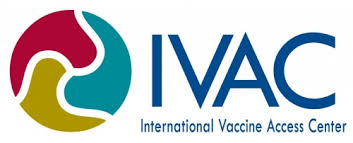By Asmau Ahmad
The Country Director of John Hopkins International Vaccine Access Centre (IVAC), Dr Chizoba Wonodi, said the first phase of the Human Papilloma Virus (HPV) Vaccine rollout in Nigeria is targeted at six million girls.
She said this in Abuja at a two-day training for Civil Society Organisations (CSOs), Community Health Influencers Promoters and Services (CHIPs), to help drive the campaign.
The training was organised by IVAC in partnership with Women Advocates for Vaccine Access (WAVA) and Direct Consulting and Logistics, to aid the introduction of the vaccine in Nigeria.
Wonodi, who is also the Convener of WAVA, said that the vaccine was intended for only girls between the age of nine and 14 and not for boys, adding that it was most effective for younger girls who have not been exposed to the HPV infection.
She said that the disease is a common infection which most women encounter once they start having sexual intercourse and that it has no symptoms.
She said that though the vaccine had been around in the world for a while, it was just getting to Nigeria because the country just got approval to receive it from the global body.
“There has been a supply constraint for the vaccine which has recently been alleviated because of a number of things.
“The producers of the HPV vaccines actually increased, I think from two to many producers and then even amongst the historic producers those who started first have expanded their production capacity a lot.
“Also, there is now an approved regimen that has been shown to work as effectively which is the single dose.
“So, Nigeria is going to introduce the single dose vaccine and so based on all that, there is enough supply available for a big country like Nigeria to introduce and they received the approval from Gavi last year to introduce the vaccine.”
On possible reactions to the vaccine when taken, she said that every vaccine is different and that expected reactions if any would be mild, such as slight pain on the site of the injection, a little bit of fever that could last for a day or less, while some people may have some rash.
Wonodi, however, said that though the expected reactions are mild typical reactions, there may also be adverse effects for some people, which was why the government put a surveillance system in place so that every girl vaccinated could report them if they happen.
Speaking about the training, she said that there were about 40 participants cut across all the area councils in the FCT.
She added that more than 200 CSOs and CHIPS agents in the participating 15 states in the first phase and the FCT had been trained earlier.
“These CSOs we have trained will now cascade to the ward level CSOs and individuals that want to support the rollout effort.
“This is one of our programmes, where we are supporting the government with the vaccine introduction and to train CSOs or mobilise them to do community engagement and demand creation.
“This is because there is a lot of awareness that needs to happen and all hands need to be on deck, so that is why we are focusing on CSOs because they are grounded in the grassroots.
“They have other programmes they have implemented and many of them are trusted by the communities. So, when you have a new vaccine like this, you need trusted people who will carry the message to the communities and they are more receptive,” she said.
The phase one of the vaccination programme will start on Sept. 25, with a national inauguration and five-day vaccination campaign, which will cover 15 states and the FCT.
The phase two will be in the remaining 21 states in the first quarter of 2024.
After the vaccination inauguration, the HPV vaccine will be included in the routine immunisation schedule for girls.
During vaccination campaigns, adolescent girls from nine to 14 years of age will be offered the HPV vaccine for free to prevent cervical cancer, which is the second leading cause of cancer deaths in Nigerian women.




